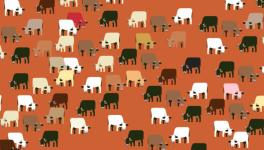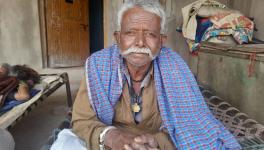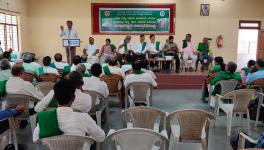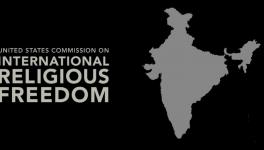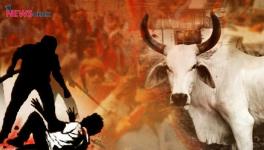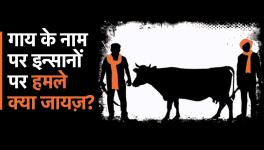Agrarian Perspective on ‘Holy Cow’ Debate
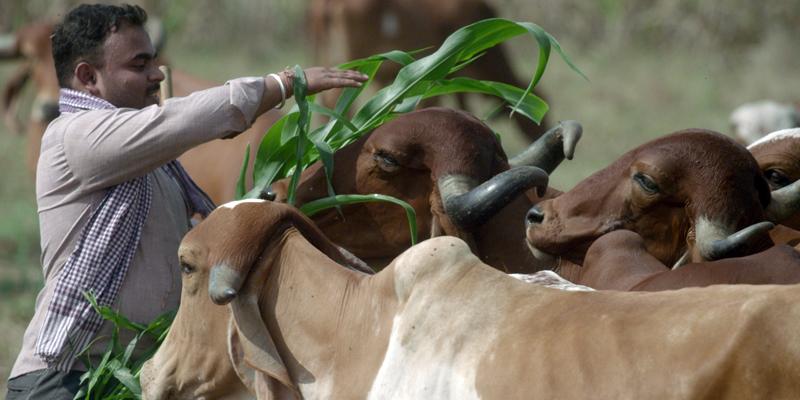
THE April 1 lynching of dairy farmer Pehlu Khan by cow vigilantes belonging to the VHP and the Bajrang Dal in Alwar in Rajasthan has brought to the national attention the agrarian aspects of the debate surrounding ban on cow slaughter. The moral and law and order aspects of the unbridled series of criminal onslaught on innocent persons belonging to the Muslim community by the Sangh Parivar, with the backing of the BJP-led governments, are of grave importance that in the long run could devastate the unity and integrity of the people and the country. The debate has now put focus on the right of the peasantry on their cattle wealth. Experts and policy-makers have unambiguously stated that the demand for a ban on cow slaughter is an assault on the dairy sector as farmers will be compelled to give up this occupation and eventually cow may disappear from India.
CATTLE WEALTH AND PEASANTRY
The demand for a ban on cow slaughter is not an issue of religious sentiments or a Hindu-Muslim, Hindu-Dalit conflict as being projected by the Sangha Parivar. It is an agrarian issue having severe implication on the economy of the peasantry. Animal husbandry accounts for 7.35 per cent of the country’s GDP, and 26 per cent of the agrarian GDP. Around 30 per cent of the peasant household income comes from cattle and cattle products. 50 per cent of the cattle in India are owned by peasant households having less than 2.5 acres of land. The poor peasantry and petty producers will be more affected by a ban on cattle trade.
Farmers sell their unproductive cattle every season to gather financial resources to purchase seed and fertiliser for cultivation, to buy young cattle and to support family expenses for medical treatment, education, wedding, etc. It is a tradition for hundreds of years. Prohibition on cow slaughter and subsequent ban on cattle trade will drive the crisis-ridden agriculture sector into a much deeper crisis and intensify the grip of debt trap over petty producers. How the rights of peasantry could be snatched by not compensating the losses suffered by them is an important aspect of the issue.
IMPACT ON ENVIRONMENT & RESOURCES
A cow lives for 20-25 years. The number of cows not in productive age is estimated around 1-3 per cent of its total population. The number of male cattle above the age of 10 is around 2 per cent of total male cattle. In the absence of slaughtering, their number should be around 50 per cent. This shows that even in the Hindi belt where the RSS is making a hue and cry about “protecting holy cows” and a ban on cow slaughter, farming households sell unproductive cows and the ones who buy them slaughter them. Cadres and leaders of the RSS-BJP combine who have cattle wealth too sell unproductive ones. Let the RSS make a survey to estimate how many cows die a natural death in the dairy farms owned by RSS followers and leaders, including Home Minister Rajnath Singh who has a habit of rearing cows at his New Delhi residence. Once a cow becomes unproductive, anyone would sell it.
As pointed out by Kirit Parikh, a former member of the Planning Commission, in an article recently published in the Times of India, if the ban on cow slaughter is effectively implemented all over the country, the number of cattle heads which was 18 crores in 2012 will be around 36-40 crores by 2027. That will put an enormous strain on the resources and the environment.
BURDEN ON PEASANTRY
An effective ban on cow slaughter will put irreparable burden on dairy farmers. A cow gives milk from the age of 3 to 10, but lives for 20 to 25 years. After 10 years, it stops giving milk. Once a cow becomes unproductive, farmers sell it at market price. Now the BJP-ruled state governments have enacted laws for cow protection and made provision of life imprisonment to those who slaughter cow. Thus, the state governments have effectively stopped cattle fair and trade in these states for unproductive animals since they have become valueless. In Haryana, buffalo has also been listed in the cow protection law and farmers are unable to sell their unproductive buffaloes. The farmer cannot get rid of an unproductive cow means the family has to feed it for the rest of its life. This is putting enormous expenses on the dairy farmers and the price of one litre milk will double as the farmer has to feed the unproductive cows also. It is an assault on dairy farmers. The cow protection laws enacted by the BJP governments are silent on this crucial aspect. The peasantry cannot accept this infringement on their rights to sell unproductive cattle and maintain dairy farm economically viable.
AIKS DEMANDS GOVT PURCHASE UNPRODUCTIVE COWS
The frenzied activism by Sangh Parivar organisatons such as the Vishva Hindu Parishad (VHP) and the Bajrang Dal and the strict implementation of the cow protection law by the BJP-led state governments are designed at systematically and slowly poisoning the society with the aim of dividing the people on communal lines for narrow political and electoral benefits. This cannot be allowed by any sensible citizen of India since it will endanger the peaceful coexistence of the people belonging to different religions and beliefs. The communal propaganda of the RSS can be countered effectively by rallying the peasantry on their material interests. Thus, the class viewpoint and economic interests of the peasantry need to be focused in the struggle to isolate and defeat the communal forces.
The AIKS has demanded that to make dairy farming viable, let the state governments purchase unproductive cows giving market rate to the farmers. Hence provisions to that effect must be brought in by amending the cow protection laws passed by the respective BJP-led state governments. The state governments must reopen all cattle fair and ensure free trade of cattle. This demand will genuinely attract even those dairy farmers who are followers of the RSS-BJP combine and have religious sentiments on cow slaughter.
Another critical issue is the menace of stray cattle. During these years, the number of stray cattle has increased enormously in the countryside. They have been destroying standing crops of farmers and the state governments are not acting on this issue. In all the recent conferences of the AIKS, farmers have expressed serious concern over this issue. The AIKS has demanded the state governments gather all stray cattle and protect them in cow shelters providing adequate fodder and veterinary care. The cow protection law must be amended to put proviso obligating the state governments to do so. Let the BJP-led state governments and the ‘swayam sevaks’ in the state cabinets take up the “divine responsibility of protecting the holy cow under government expenses”, rather than putting the enormous burden on the shoulder of the peasantry.
The AIKS has decided to mobilise dairy farmers, especially in the BJP-ruled states, on these demands. This will help to politicise the peasantry and the public and expose the communal agenda of the RSS which has hitherto been able to misuse the sentiments among certain sections for communal polarisation.
DIVERTING ATTENTION FROM ANTI-FARMER POLICIES
The Modi dispensation and the BJP-led state governments are pathetically failing to resolve the agrarian crisis and betraying the peasants by not keeping the promise made in the 2014 Lok Sabha election manifesto of the BJP to enhance the prices of all agricultural products to a level which is 50 per cent in addition to the cost of production. Peasant suicides have increased by 26 per cent in the three years of the Modi rule. The Modi government has allowed 100 per cent FDI in agriculture allowing multinational corporations to take over the sector, especially in areas of procurement, processing and marketing. The 2016-17 Union Budget had announced e-marketing to connect all agriculture produce markets in the country to facilitate cheap procurement of agro products for the private companies working in the agro processing sector. The 2017-18 Union Budget has announced contract farming all over the country. Thus, the Modi government is pursuing the neo-liberal economic policies more vigorously as compared to the previous Congress governments.
To divert the people’s attention from such anti-peasant policies and to divide the peasantry, the RSS is trying to rake up communal unrests by unleashing illegal armed vigilante groups and lynching innocent lives bringing complete anarchy and lawlessness in the country in the name of protection of holy cow. It reminds us of the barbarism under the Taliban or the Islamic State. Only a united resistance of the peasantry, armed with the support of Indian working class, and building a left and democratic alternative at all-India level could take up the challenge of rallying people to oppose reactionary and anti-national politics of the RSS-BJP combine.
Disclaimer: The views expressed here are the author's personal views, and do not necessarily represent the views of Newsclick.
Get the latest reports & analysis with people's perspective on Protests, movements & deep analytical videos, discussions of the current affairs in your Telegram app. Subscribe to NewsClick's Telegram channel & get Real-Time updates on stories, as they get published on our website.









